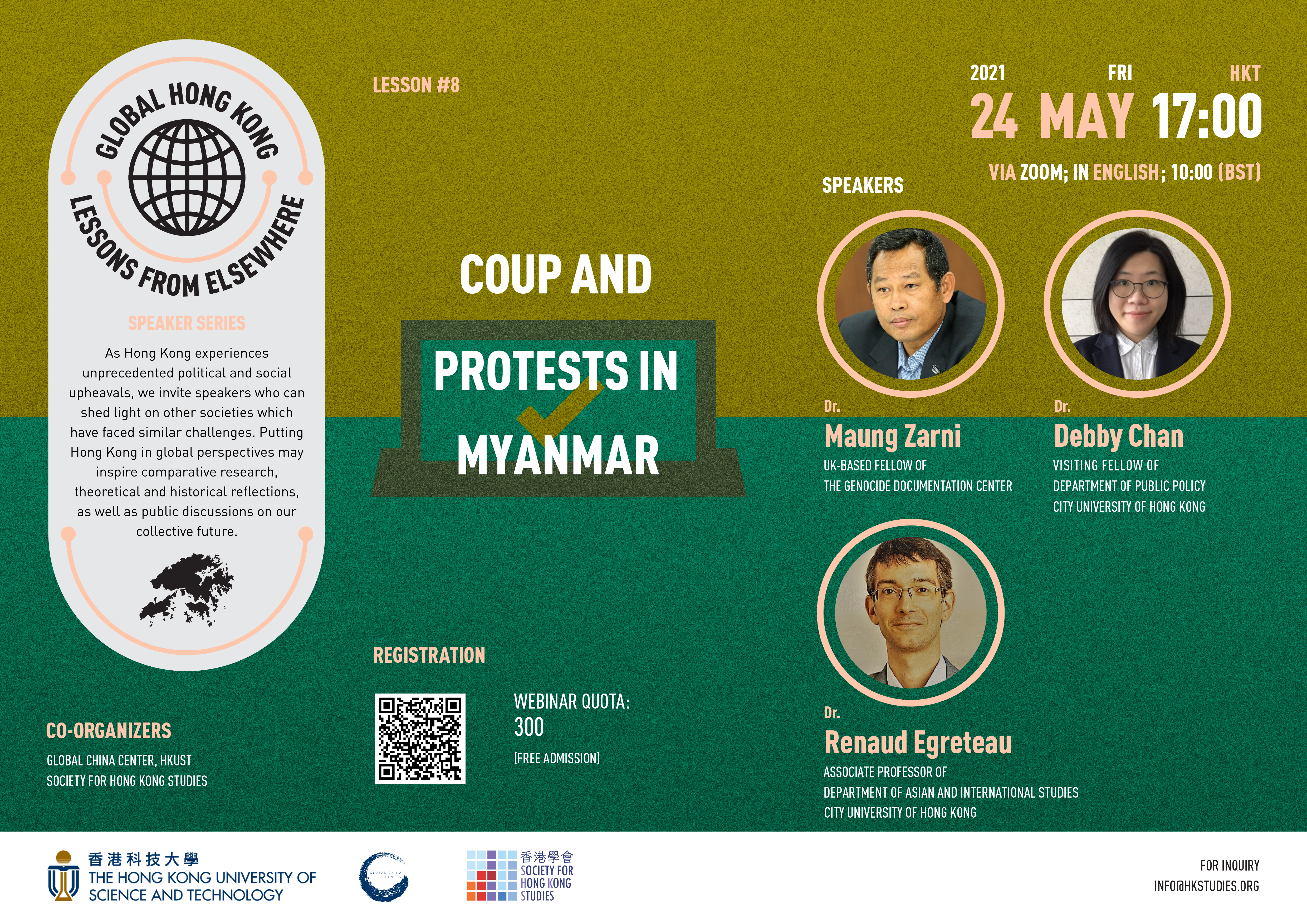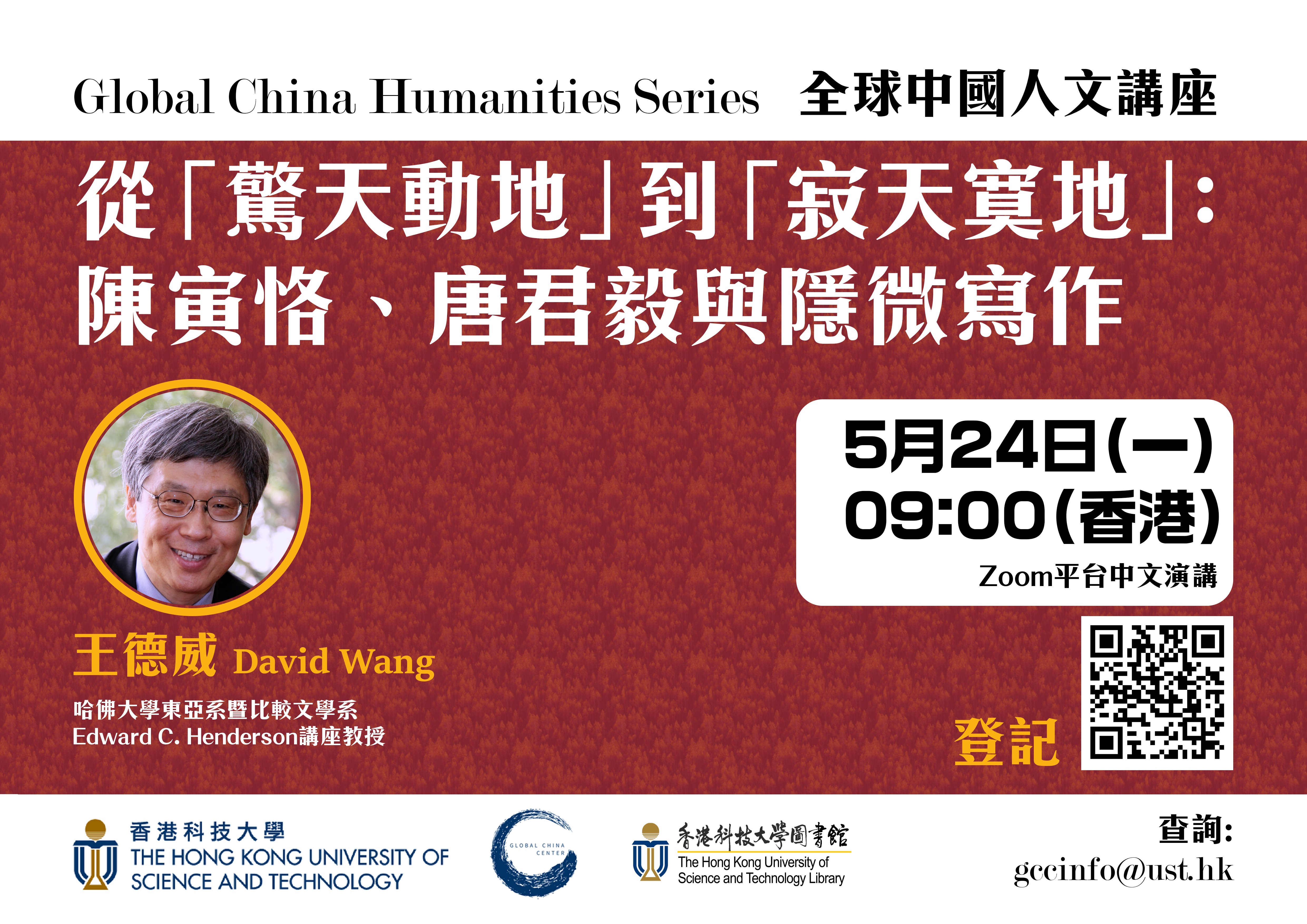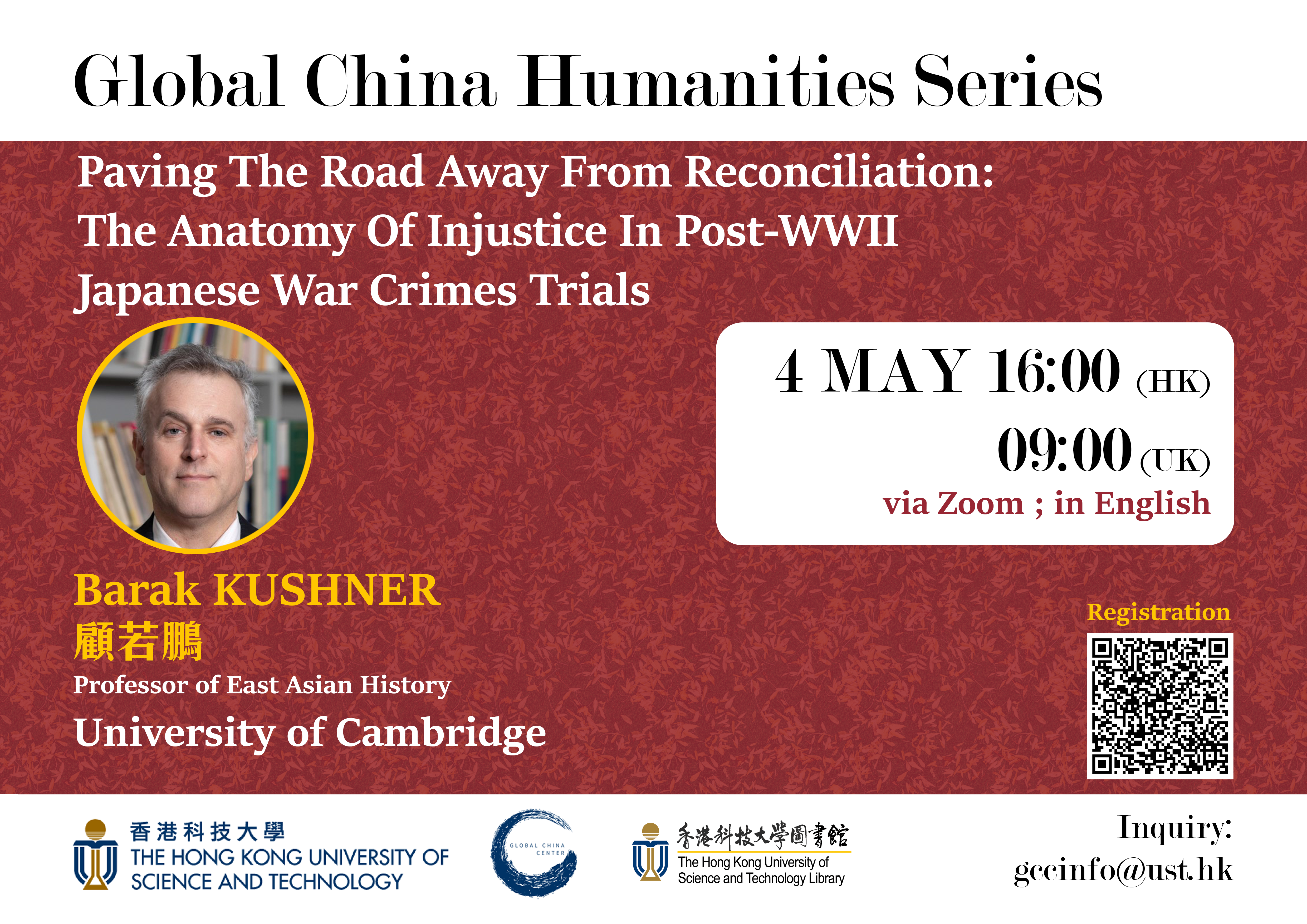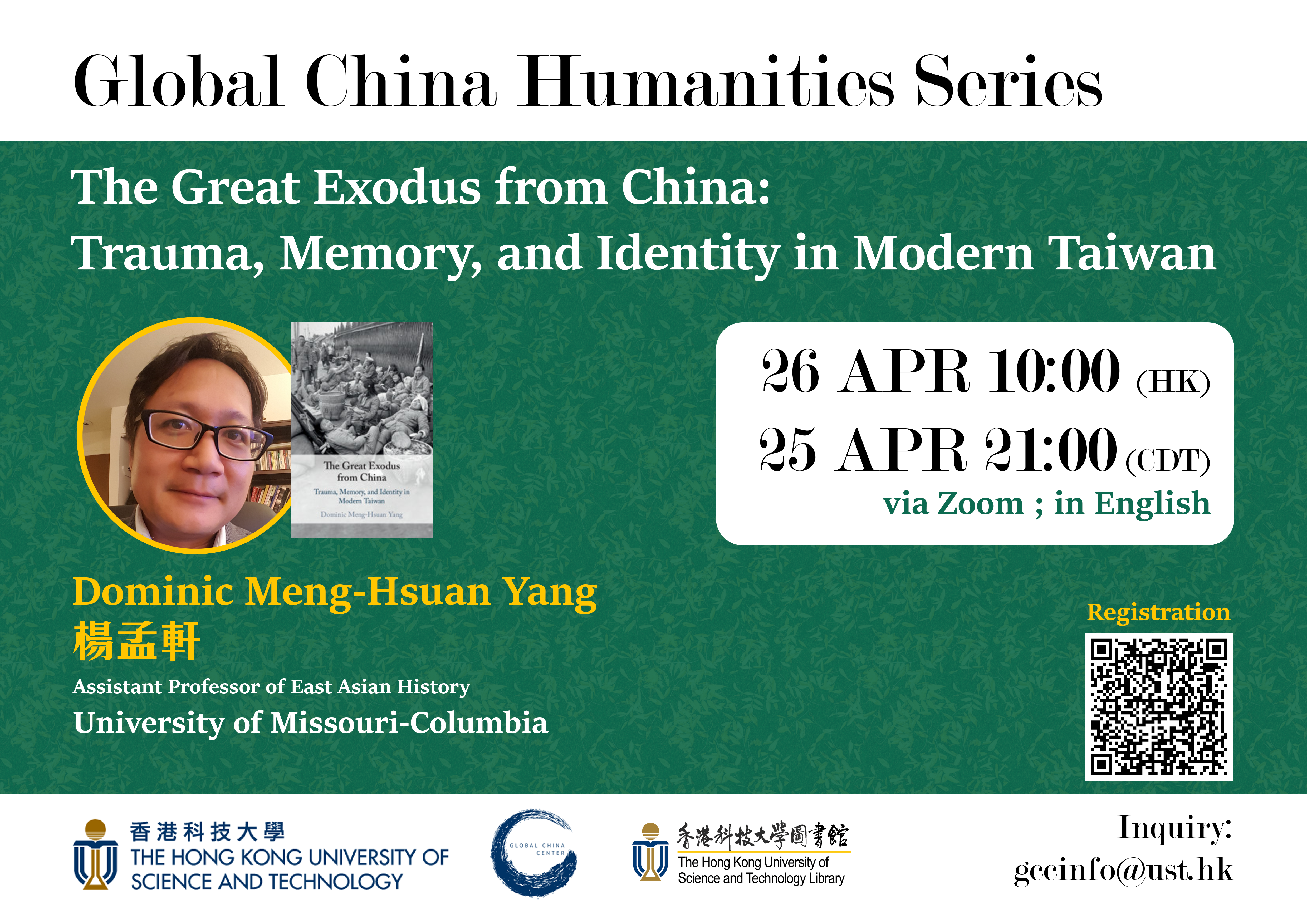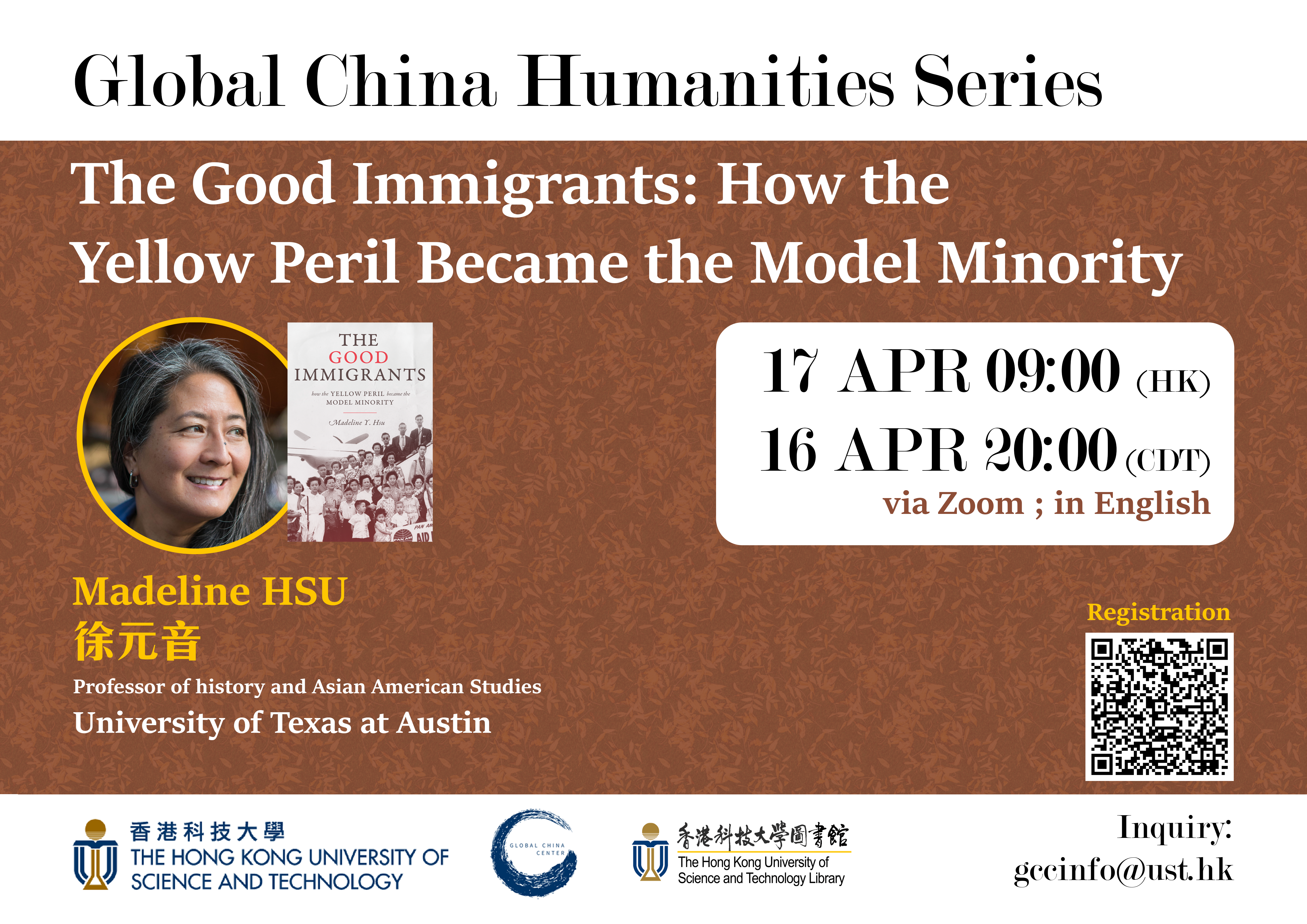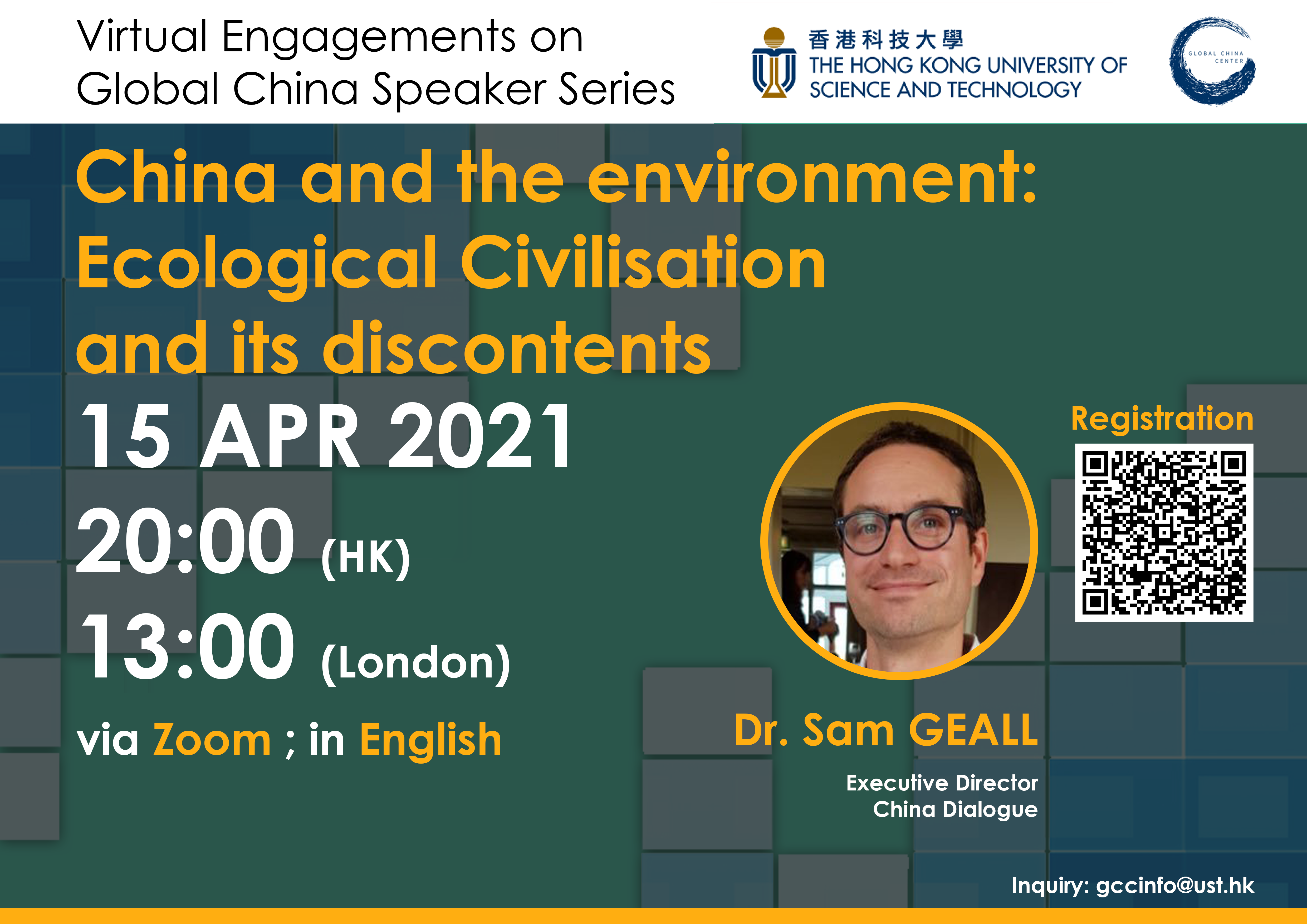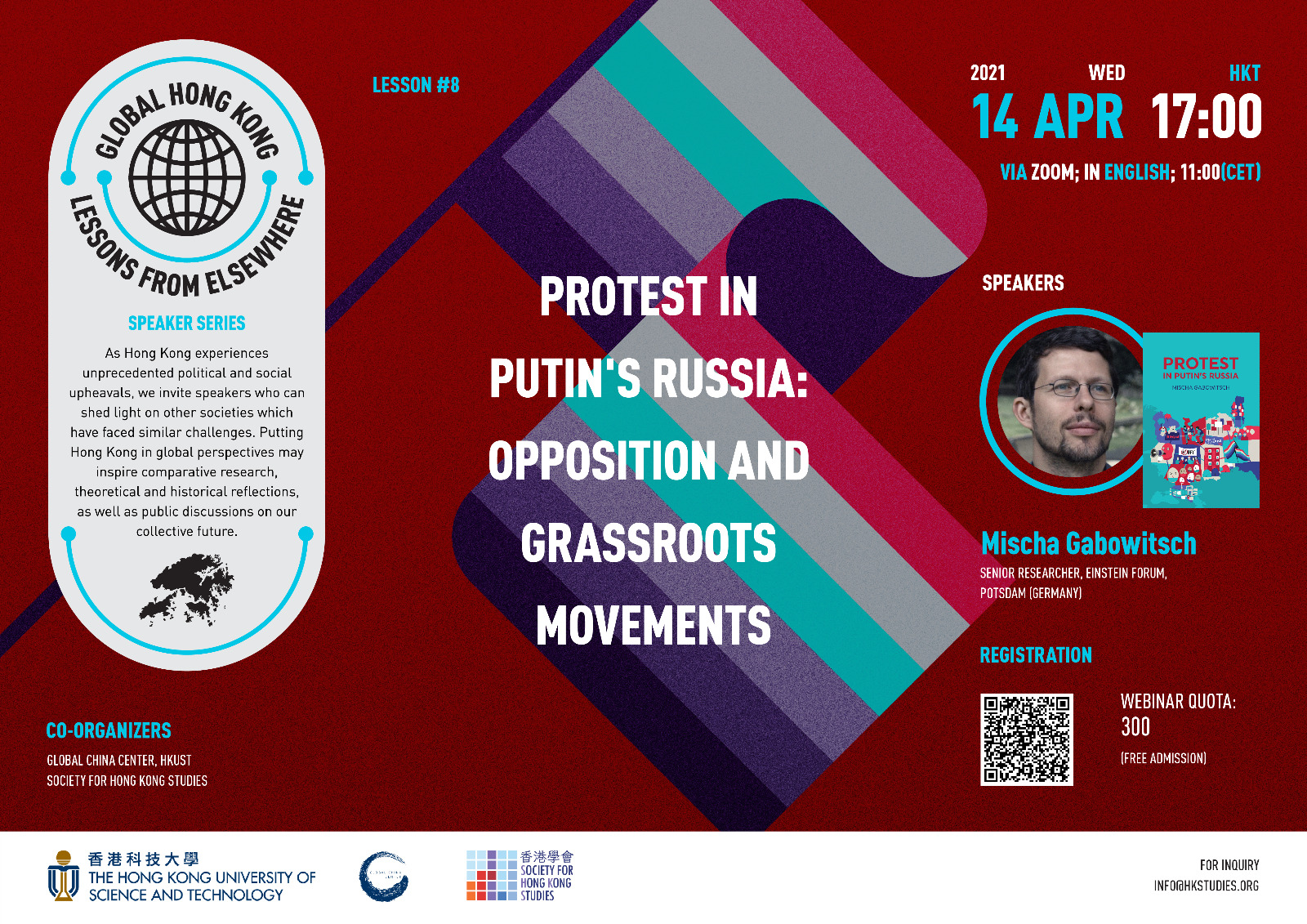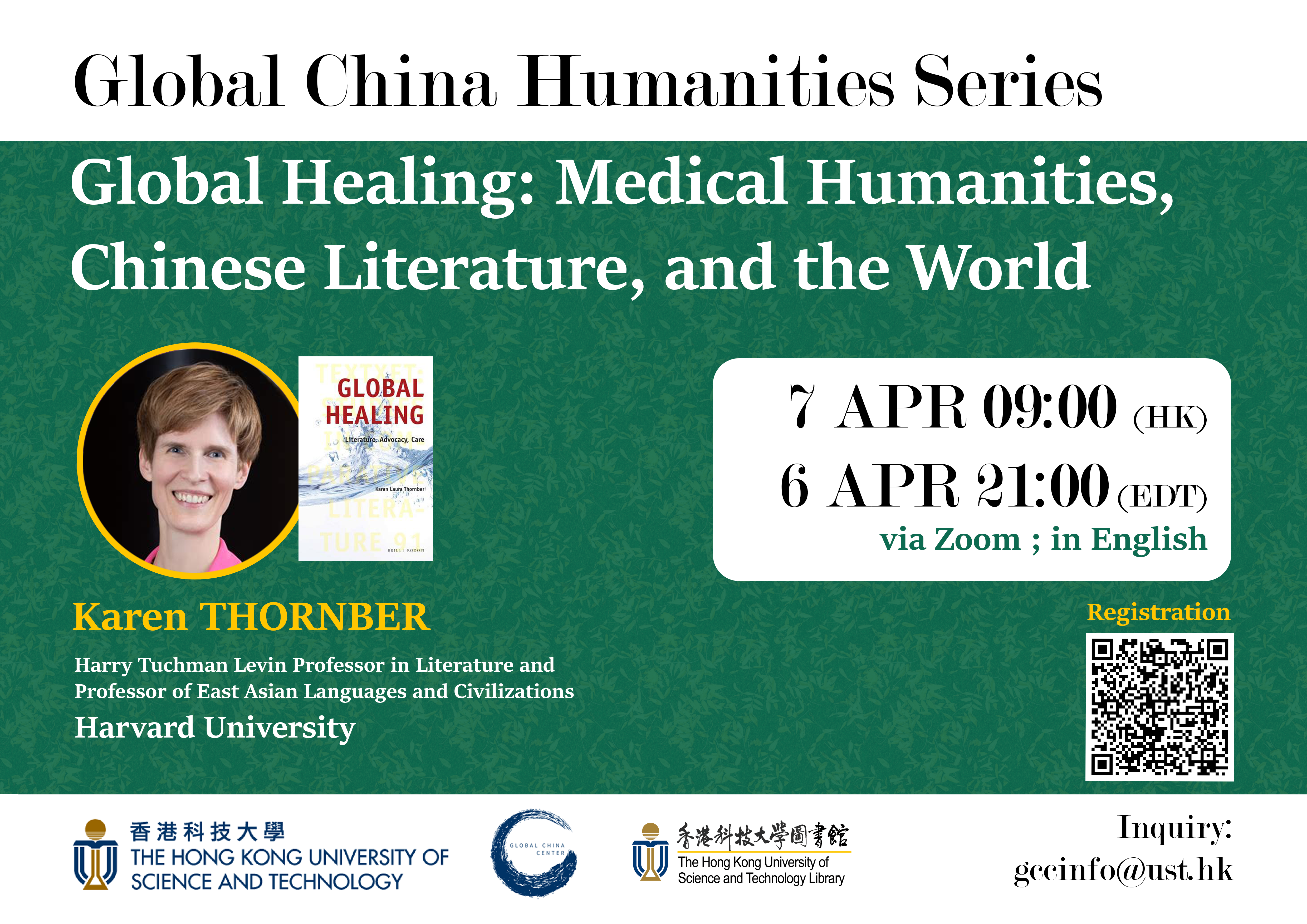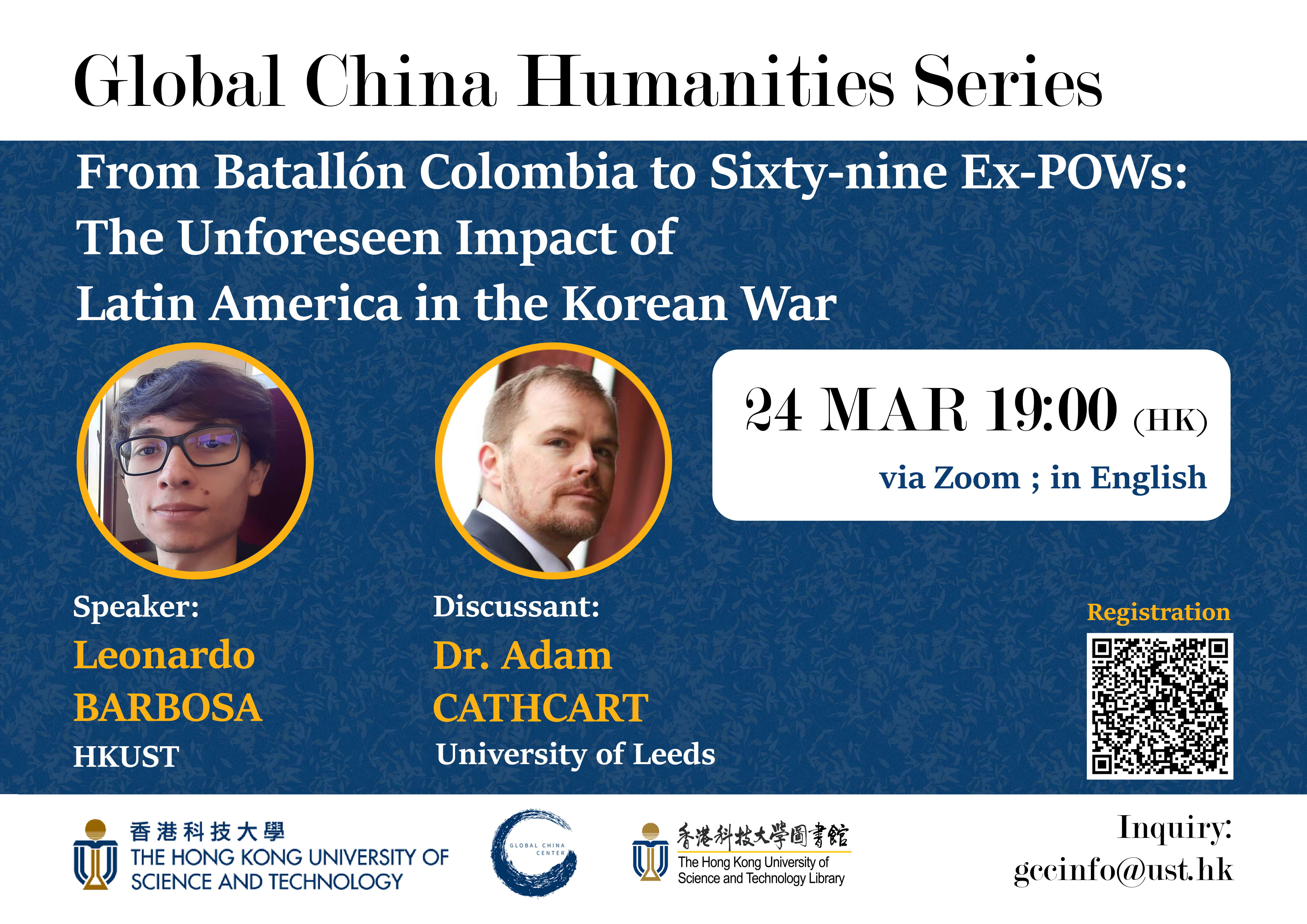A poster for a Chinese high-speed train at the construction site for a bridge over the Mekong River in Laos
Upcoming Events
Past Events
Coup and Protests in Myanmar
Zoom
by Dr. Renaud EGRETEAU (CityU of HK) , Dr. Maung Zarni and Dr CHAN, Sze Wan Debby(CityU of HK) on 24th May 2021 (Mon) 17:00 (HK), 10:00 (UK) READ MORE...
從「驚天動地」到「寂天寞地」:陳寅恪、唐君毅與隱微寫作
Zoom
一九四九年新中國成立,知識分子面臨重大抉擇。陳寅恪南下廣州,唐君毅輾轉來到香港。五十年代兩人治學方向都有微妙轉圜:陳寅恪研究《再生緣》及柳如是傳奇,唐君毅則在《中國文化之精神價值》中評鑒傳統戲曲及說部。世變之際,文學成為兩人觀照歷史、辯證思想的方法。陳寅恪自謂頌紅妝之事,以待來者;唐君毅更藉《水滸傳》反省生命從「驚天動地」到「寂天寞地」的道理。他們字裡行間所留下的暗碼系統,召喚我們在不同的時代作出不同的解讀。 READ MORE...
Paving The Road Away From Reconciliation: The Anatomy Of Injustice In Post-WWII Japanese War Crimes Trials
Zoom
The Tokyo Trial, 1946-1948, and the lesser BC class war crimes trials throughout East Asia of former Japanese soldiers, never get mentioned with the same hushed tones of legal reverence as the Nuremberg Tribunal of Nazis. Why did justice seemingly fail in East Asia when theoretically the same international law was pursued on both sides of the globe? Put another way, if Nuremberg bequeathed an academy to carry forth into the next generation the Nuremberg Principles, what happened in war crimes courts in East Asia that rendered such notions legally impotent? This talk investigates how a history of injustice developed in postwar East Asia and how it came to wield the potent political force it manifests today. READ MORE...
The Great Exodus from China: Trauma, Memory, and Identity in Modern Taiwan
Zoom
The Great Exodus examines the forced migration from China to Taiwan in 1949 when Chiang Kai-shek’s Nationalist regime collapsed on the mainland. The migration has largely been understood as a military withdrawal operation or a relocation of government. As such, this mass emigration remains one of the least understood population movements in modern East Asia. Peeling back layers of Cold War ideological constructs on the subject, Yang breaks new ground in Chinese Civil War historiography. He lays bare the traumatic aftermath of the Chinese Communist Revolution for the hundreds of thousands of ordinary people who were forcibly displaced across the sea and for the local Taiwanese who were compelled to receive them. The book underscores displaced population’s trauma of living in exile and their poignant “homecomings” in both post-Mao China and post-liberalization Taiwan. It presents a multiple-event trajectory of repeated traumatization with recurring but different memory productions through time in search of home, belonging, and identity. This trajectory challenges established notions of trauma, memory, and diaspora. It speaks to the importance of subject position, boundary-crossing empathic unsettlements, and ethical responsibility of historians in writing, researching, and representing trauma. READ MORE...
The Great Transformation: China’s Road from Revolution to Reform, 1969-1984
Zoom
This joint book project with Professor CHEN Jian attempts to provide an easily accessible survey of key developments in what is arguably the most important political, social, and economic transition of the 20th century: China's road from an isolationist revolutionary state to a pragmatic market-oriented regime. By reviewing both China’s domestic and international affairs during its ‘long 1970s’ – from the Ninth Party Congress and the Sino-Soviet clashes in the spring of 1969 up to the Twelfth Party Congress and the opening to the outside world in the early 1980s – the project intends to stress three key themes: The end of the revolutionary phase in Chinese Communist politics, the beginning of a new international orientation for the PRC, and the creation of a new economic system, built from above and from below, that set the stage for the remarkable growth of the 1980s and ‘90s. READ MORE...
The Good Immigrants: How the Yellow Peril Became the Model Minority
Zoom
Conventionally, US immigration history has been understood through the lens of restriction and those who have been barred from getting in. In contrast, The Good Immigrants considers immigration from the perspective of Chinese elites—intellectuals, businessmen, and students—who gained entrance because of immigration exemptions. Exploring a century of Chinese migrations, Madeline Hsu looks at how the model minority characteristics of many Asian Americans resulted from US policies that screened for those with the highest credentials in the most employable fields, enhancing American economic competitiveness. The earliest US immigration restrictions targeted Chinese people but exempted students as well as individuals who might extend America’s influence in China. Western-educated Chinese such as Madame Chiang Kai-shek became symbols of the US impact on China, even as they patriotically advocated for China’s modernization. World War II and the rise of communism transformed Chinese students abroad into refugees, and the Cold War magnified the importance of their talent and training. As a result, Congress legislated piecemeal legal measures to enable Chinese of good standing with professional skills to become citizens. Pressures mounted to reform American discriminatory immigration laws, culminating with the 1965 Immigration Act. The Good Immigrants examines the shifts in immigration laws and perceptions of cultural traits that enabled Asians to remain in the United States as exemplary, productive Americans. READ MORE...
China and the environment: Ecological Civilisation and its discontents
Zoom
The Chinese government has stated its intention to take the lead on climate change, and “Ecological Civilisation” has become an important slogan for Chinese President Xi Jinping. China has demonstrated a remarkable energy transformation in its domestic market. But Chinese firms, private and state-owned alike, are finding an outlet for overcapacity and shrinking domestic markets by exporting carbon-intensive production overseas. This presents a challenge to the vision of a cleaner power sector in many countries, particularly those at an important inflection point in their development. This talk will examine the impact, drivers and likely trajectory of China’s development and overseas investments, from rhetoric to reality. READ MORE...
Protest in Putin's Russia: opposition and grassroots movements
Zoom
Protest in Russia is often portrayed in terms of a conflict between the Putin regime and its political opponents. However, the most tenacious and successful protest in recent years has been associated with regional movements targeting specific issues, usually linked to the environment or urban development. Resistance to perceived encroachment by the central government is often crucial to these movements, but they do not usually challenge the political system as a whole. READ MORE...
GLOBAL HEALING: MEDICAL HUMANITIES, CHINESE LITERATURE, AND THE WORLD
Zoom
Narratives from diverse communities globally have for millennia engaged with a broad variety of diseases and other serious health conditions. In more recent decades, many have advocated for empathic, compassionate, and respectful care that facilitates healing and enables wellbeing. In this presentation, grounded in my recent book Global Healing: Literature, Advocacy, Care, I’ll discuss the role of literature, and especially Chinese literature, in imploring societies to shatter the devastating social stigmas which prevent billions from accessing effective care; to increase the availability of quality person-focused healthcare; and to prioritize partnerships that facilitate healing and enable wellbeing for both patients and loved ones. I’ll also introduce the fields of the medical humanities and the health humanities and speak to the contributions the study of literature can make in this pandemic era. READ MORE...
From Batallón Colombia to Sixty-nine Ex-POWs: The Unforeseen Impact of Latin America in the Korean War
Zoom
This presentation examines how the Latin American countries of Colombia, Brazil, Argentina, Mexico, and Chile responded to the outbreak of the Korean War in 1950. This conflict was the first global conflict in the struggle between communism and capitalism, and therefore, is one of the main starting points in the drawing of future Cold War alliances. Because all independent Latin American countries were part of the establishment of the United Nations in 1945, they would be automatically aligned with the United States. Moreover, since 1947, all these nations had also signed the Inter-American Treaty of Reciprocal Assistance with the United States, which united the entire continent in a reciprocal military alliance. However, when in 1950, the U.S. government triggered the treaty and pleaded for assistance from the Latin American states, the result was frustrating: only Colombia agreed to send troops, while other major countries only contributed with supplies. In 1955, two years after the signing of the armistice, other Latin American countries would also play a significant role, with Brazil and Argentina offering to receive more than fifty prisoners of war who expressed the desire to go to a neutral country during the UN interrogations. Through the Latin American case study, this presentation explains how diplomacy, ideology, military power, economic interests, and domestic issues led each Latin American nation to adopt a different position in response to the Korean War, contradicting most presumed conventions of “automatic alignment” in the Cold War. READ MORE...
